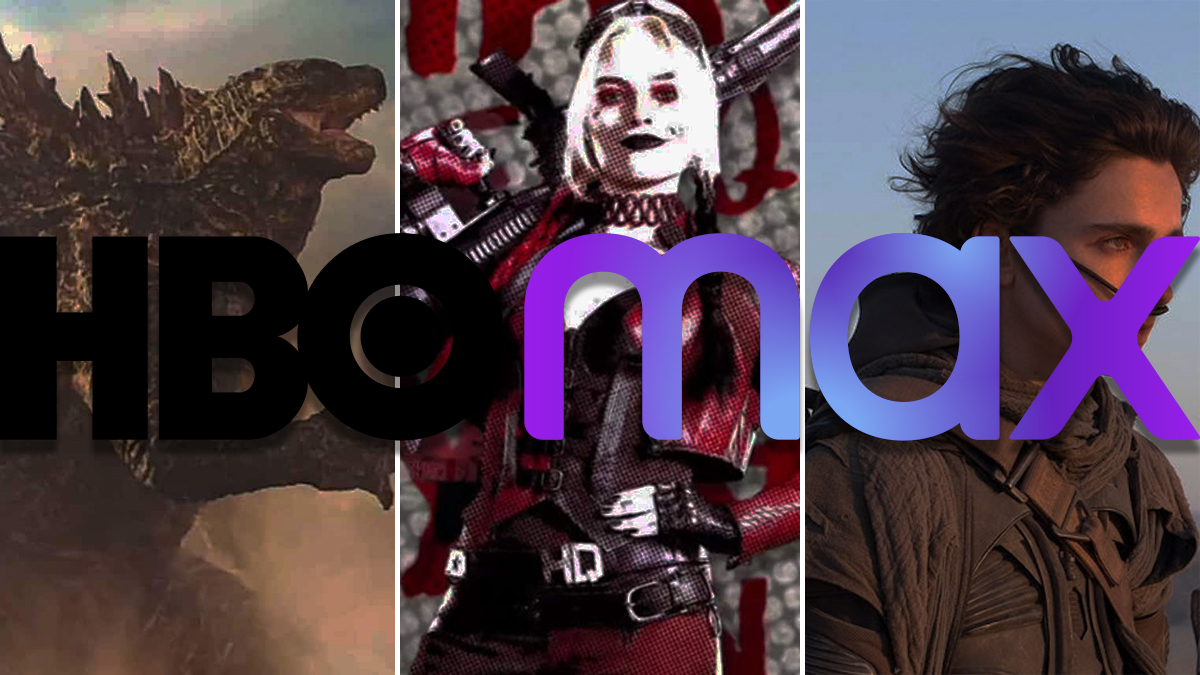When Warner Bros. made the historic decision to put Wonder Woman 1984, a blockbuster superhero movie and their biggest film slated for 2020, on HBO Max the same day as its Christmas premiere, we wondered if it would “end theatrical releases as we know them.” We don’t have to wonder anymore. In a significant transition to a day-and-date model that makes Wonder Woman’s break of the theatrical window look like a small crack, WB announced Thursday that its entire film slate for 2021 was going to premiere on HBO Max.
The move will put all 17 of WB’s scheduled 2021 films on a “hybrid” model where films will premiere on HBO Max the same day as their theatrical release in the U.S. Technically speaking, the films will still be playing in theaters, particularly in international markets without HBO Max as a streaming option, but for the first (and most lucrative) month of their release, they’ll also be available on WarnerMedia’s streamer.
This change puts major blockbusters like Godzilla vs. Kong, The Suicide Squad, Dune, The Conjuring 3: The Devil Made Me Do It, and The Matrix 4 on a release window that will go straight to your living room. That also applies to slightly smaller but high profile fare like Judas and the Black Messiah, In the Heights, and The Many Saints of Newark, among others.
The fallout of the move will likely be extraordinary. Just in terms of streaming, this will mark a massive shot of adrenaline into WarnerMedia’s new HBO Max service, which launched to decent if not extraordinary subscription numbers in 2020. But with a film slate that will arguably surpass Netflix and Disney+’s current heavy hitters for the New Year, HBO Max just became incredibly more competitive.
On the larger questions of how this will affect theatrical exhibitors and theater owners, leadership at Warner Bros. and WarnerMedia stressed this is a “unique” solution to an unprecedented crisis. Nine months into the COVID-19 pandemic effectively shutting down moviegoing as we know it, all of the major Hollywood studios have moved most of the big 2020 releases to 2021. WB was one of the lone holdouts, releasing Tenet in limited U.S. release and a wider international rollout. The film has barely grossed $350 million worldwide to date, and with a ghastly $57.4 million in North America.
As the pandemic rolls into another year, and with this winter likely being worse than last spring’s first wave, adjusting to the new reality is unavoidable. But WB has attempted to play down the significance of this massive adjustment of the theatrical window.
“No one wants films back on the big screen more than we do,” said Ann Sarnoff, chair and CEO of WarnerMedia Studios and Networks Group (which includes WB). “We know new content is the lifeblood of theatrical exhibition, but we have to balance this with the reality that most theaters in the U.S. will likely operate at reduced capacity throughout 2021. With this unique one-year plan, we can support our partners in exhibition with a steady pipeline of world-class films, while also giving moviegoers who may not have access to theaters or aren’t quite ready to go back to the movies the chance to see our amazing 2021 films.”
She added, “We see it as a win-win for film lovers and exhibitors.”
We imagine movie theater exhibitors feel differently. A spokesman for the National Association of Theatre Owners (NATO) declined to comment for this article.
WarnerMedia insists this is a “unique” solution due to COVID-19, and that it is intended only to affect the next 12 months of distribution. However, once the genie out of the bottle, it remains unknown how easily it can be placed back in. For the next year, consumers of Warner Bros. films, particularly their favorite DC-related superhero films, will be able to access all of that content from the comfort of their own home. If it winds up being more than two years since one such movie premiered exclusively in theaters, will the demand be as strong for a theatrical model in 2022 for The Batman?
It’s worth noting that WarnerMedia CEO Jason Kilar said last month of the Wonder Woman 1984 change that WB will continue to serve moviegoing for “as long as fans seek out the theatrical experience.”
Similarly, if Warner Bros. is making such a bold move, the obvious question in the industry is whether Disney will follow its example. Disney is the studio best situated—even more so than Warner Bros.—to transition to a streaming model where its new films are released concurrently or exclusively on Disney+. As one of the most popular streaming services in the U.S., Disney+ has a deep subscription base, and the Mouse House has already begun experimenting with using a pricy PVOD model when they put Mulan on Disney+… with an additional $30 price tag. The studio has meanwhile also put this month’s Pixar movie, Soul, on Disney+ with no added pay wall, similar to the early Hamilton rollout in July.
To date though, Disney has resisted putting a Marvel Studios film like Black Widow on their streaming service, never mind a whole year’s release slate. This could be an incentive to compete. And if Disney and Warner Bros. both transitioned to a day-and-date release strategy, the two biggest studios in the world will have effectively undercut the value of their theatrical output for more than a year.
The third biggest competitor on the global market, NBCUniversal’s Universal Pictures, doesn’t quite have the current infrastructure needed to duplicate this model. While the media conglomerate has its own shiny new streaming service in Peacock, the service’s smaller subscription base would make it appear less likely it could emulate such a move. However, if WB has major success with Wonder Woman or Godzilla, who is to say that Universal wouldn’t see if they could drive up those subscription fees?
Read more
However, from the outside looking in, it could be just as likely the studio continues to pioneer its own release strategy via its historic deal with AMC Theatres. That agreement with the biggest theater chain in North America allows Universal to put any release on VOD after 17 days (and likely three weekends) at the box office. This potentially shrinks the theatrical window to less than a month, but it at least gives exhibitors some exclusivity on potential blockbusters like F9 or Jurassic World: Dominion.
To be clear, this announcement does not mean the end of movie theaters or that audiences will simply stop going to the cinema. For starters, few of these streaming services have access to major international markets like China, which in 2020 produced more box office revenue than the U.S. for the first time in history. More significantly there will always be an audience for a theatrical experience, just as there are still audiences for the real theatrical experience of live theater and performing arts.
But it is possible to imagine audience tastes changing in paradigm-shifting ways much sooner than initially anticipated. And the audience for cinemas could become more niche as it is with performing arts. Or on the flip side, exhibitors may rebound after COVID by continuing to transition cinemas into interactive media destinations for all ages.
At the moment, it’s obviously uncertain, but it’s difficult to imagine this will not fundamentally change audience perceptions about how to consume movies—as well as what kind of films might get made if studios no longer can rely on billion-dollar grosses. These steps will continue to be gradual, but today the industry took a big one toward an unknown and very different future.


